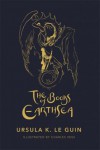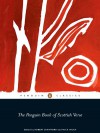Arbie's Unoriginally Titled Book Blog
It's a blog! Mainly of book reviews.
Currently reading
Six Middle English Romances (Everyman's Classics)

This edition seems good in that it has a worthwhile introduction and helpful marginal glosses, along with footnotes translating obscure lines (as opposed to obscure words in the margin). It also has a commentary at the back that can be ignored but I felt offered interesting and useful additional information and clarification. Occasionally I thought that lines and words that were obvious were glossed and lines and words that were obscure remained unannotated but then, that seems to happen to me every time I read Middle English.
Sege of Melayne
There seems to have been a lot of cross-over between France and Britain with regard to legendary/Romantic material: Arthurian stories were taken up by the French and expanded into what I once read described as a "tapestry" - and if you've ever seen a Mediaeval tapestry you know they are huge and must take enormous labour to make. Subsequently, Arthur was re-adopted by Malory for readers of English.
For the first time I have discovered that the French Charlemagne/Roland/Saracens material was taken up by Middle English poets - because that is what the Sege of Melayne is - a Romance about the French fighting the Saracens in which Roland and Charlemagne both appear.
Numerous (from a modern perspective) crazy things happen, which is in large part why I like these old stories. There are miracles, a clerical army, sudden reversals of fortune and at times a very strong sense that matters are not going to end well for the heroes. But how does it end? Nobody knows because additionally to the occasional word or line that has lost legibility over time, there are two parts at least one leaf long that are lost - including the ending. Fortunately, the main action is over before the unintended abrupt curtailment at line 1600.
It's a heap of fun and not very difficult, considering the help from the "apparatus" although I think it's probably easier to start with The Riverside Chaucer (and its excellent, comprehensve introduction to both the poet and Middle English itself) if you've never read Middle English before.
Much extant Middle English literature has strong religious (Christian) themes and that is very overt here since the story is about Christianity vs. Islam even more than it is about French vs. Saracens. The real hero of the Romance is Bishop Turpyn who raises an army of clergy to physically fight against the invaders and curses all and sundry who get in his way with cavalier abandon. He displays what I think most modern readers would consider scary fanaticism but he is obviously meant to be a shining example of true faith and piety - and God is obviously in favour of slaughtering anybody who isn't a believer in the divinity of Jesus. The Saracens and Islam are presented in propaganda terms, with little character development and hardly any positive characteristics. It's not quite so black and white on the Christian/French side, with some characters who show human weakness without just being pantomime villains.
The denouement is pure cliche; when the French look to be beyond hope of victory,unexpectedly, the cavalry ride over the hill and save the day!
Emare
This is the first Saintly Life style of Romance I've ever read. It's not really as much fun as the Sege was. Emare is unjustly persecuted and exiled and eventually restored to her proper place. She is very passive in the story, primarily a victim with events affecting her almost entirely without involving her own actions. So in a sense it's like the Book of Job, in which Job is a victim and accepts what is happening to him without losing faith before getting what he deserves for that very faith. Not exactly a modern approach where-in readers generally expect the protagonist to have agency in events. I'm not sure if this passivity is typical of these Saintly Lives or not but if it is, I can't say I'm in a hurry to read them all.
Octavian
What I'm learning from this book is that Middle English Romance is much more diverse than I previously recognised. It's not only Courtly Love and epic battles. This one has both of those but additionally implausible adventures with wild animals, a giant and the theme of a wrongly accused Lady similar to that of Emare.
The generous dollops of preposterousness are all part of the appeal for me and in Octavian things are getting reminiscent of the Alexander Romance, in this regard. I don't think I've ever read anything with quite as much absurdity per word as that "biography" of Alexander the Great.
But back to Octavian. Along with OTT plotting, there is often OTT imagery in Romance and this particular poem has some brilliant ones. Usually in this type of story, heaps of people get "greivous sore" hurts and such like but it is all quite distancing - the real brutality of hand-to-hand combat is not highlighted - however at one point in Octavian, our hero has his sword broken so he picks up a severed leg and starts using it to continue to fight the horde of Saracens he's picked a fight with...
Definitely the silliest (and therefore best) so far - what will the remaining three poems in this volume hold?
 5
5










